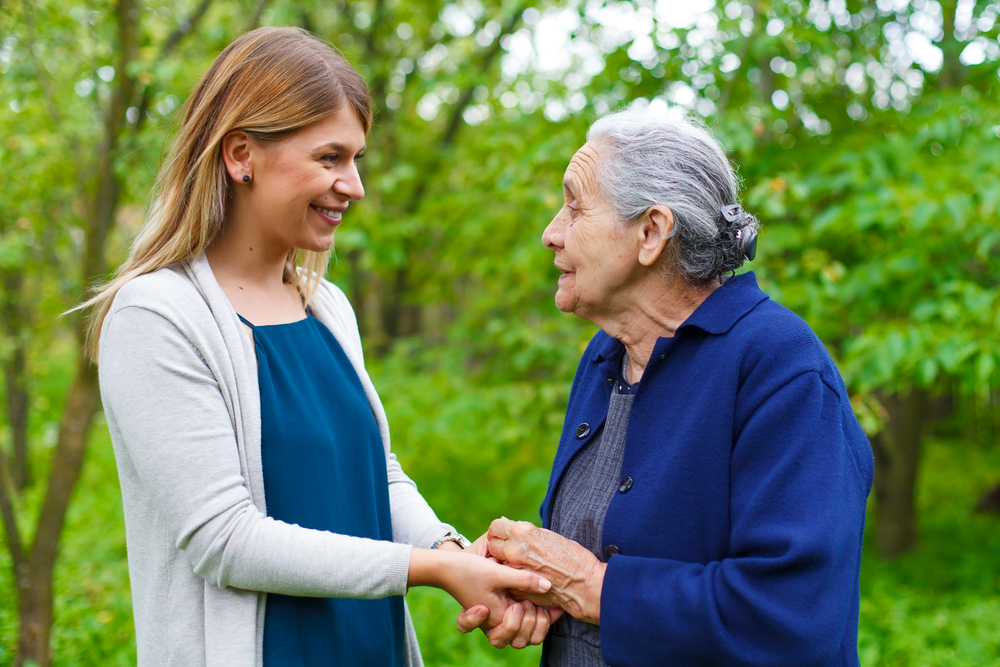
Introduction
Dementia is a progressive disease, mostly affecting older adults, which, in addition to memory loss, can lead to problems with thinking, language, orientation and coordination. Whilst dementia is most classically associated with memory loss, a major part of managing or caring for someone with dementia revolves around behavioural and psychological symptoms of dementia (BPSD). Behavioural symptoms can include, restlessness, wandering, and in some cases, physical aggression which can be particularly distressing for carers.
Psychological symptoms associated with dementia can include anxiety, depression and even hallucinations. These symptoms can have a serious impact on a someone’s quality of life, and whilst some can be managed with medications, there are an increasing number of additional strategies that carers and health professionals caring for patients with dementia can consider, which may benefit both patients and their carers. Recent research looked at methods to prevent wandering using a ‘home-based missing incident prevention. The programme included strategies such as dementia education, assistive devices, skills training, environmental modifications, and redesigning of daily life routines. This programme was found to reduce the frequency of missing incidents (and searching time), as well as significantly reducing carer stress.
5 things that can support carers to care:
1. Education
Educating carers about dementia, the progression of the disease and its management can have considerable impacts on quality of life for both the person being cared for and their carer. As dementia can progress and may worsen over time, having an idea of what is expected can give insight and offer time to prepare for the future. Most of the non-drug management of dementia has carer education at its core. Improving knowledge and understanding of dementia has been shown to positively impact both patients and carers. There are several excellent sites that provide courses and free resources for carer and patient education:
2. Sleep hygiene
Up to 35% of patients with dementia can have problems with sleep, including reduced sleeping time, poor sleep quality and sleep walking. Many older adults experience sleeping problems, and these can be exaggerated by dementia. Whilst there are several medical-based solutions that can help with sleep, these all come with potential risks and side effects (some of which may outweigh their benefit). There are several strategies that can be put in place at home to promote better ‘sleep hygiene ‘that essentially encompass things to aid sleep and improve the quality of sleep throughout the night
- Increasing day time activities and minimising daytime napping
- Regular exposure to natural light during the day
- Keeping to a reasonably regular routine
- Reducing caffeine intake
- Ensure regular toileting to avoid waking up in the night to go to the toilet
- Maintaining a good sleeping environment; a quiet, dark room with a comfortable temperature
- Avoiding going to bed having just eaten a large meal or feeling hungry
It is also worth checking with a GP to make sure there is not an additional underlying cause of sleep disturbance such as heart or urinary problems. Again, research has shown that carer-education is key, and that there are significant benefits for patients whose carers implement an effective sleep hygiene programme.
it’s important to remember that Carers need good sleep too! For more information, the National Sleep Foundation has some great advice.
3. Exercise
Physical exercise is already established to have widespread benefits amongst older adults for improved health. However, in the last few years, there has been research looking more specifically at the effects of exercise on patients with dementia, with a particular focus on BPSD. Activities such as aquatic exercises that focus on areas like strength, agility, balance, and coordination showed reduced BPSD and an overall improvement in general psychological wellbeing. Exercise-based activity has also been shown to help with carer burden and distress associated with BPSD.
In addition to helping with dementia-specific issues, exercise activities can have widespread physical and mental health benefits as well as providing a much-needed social interaction for both patients and carers who may become isolated.
4. Alternative therapies
In addition to exercise, there are several additional activities labelled ‘alternative therapies’ that have shown to have some benefit. These can range from engaging in normal hobbies such as music, arts, or anything of personal interest, to the use of aromatherapy and bright light therapy. These are useful additions for some people to consider alongside their medical treatment and can be instrumental in improving quality of life. The main areas of improvement can be seen with music-based activities and aromatherapy has been shown to reduce levels of anxiety and agitation.
5. Caring for the carers
Caring for someone with dementia can be very challenging. Whether it be in a healthcare setting or at home, and caregiver strain is a frequent phenomenon seen in carer roles throughout healthcare. All the strategies above have been shown to alleviate carer burden in varying ways, and data collected from people who care for someone with dementia has shown that those that had higher levels of self-compassion and self-care had improved coping strategies.
There are several UK-based organisations that provide support, advice and help for carers:
This article is for information only and should not be used for the diagnosis or treatment of medical conditions. myHealthSpecialist makes no representations as to the accuracy or completeness of any of the information in this article, or found by following any link from this article. Please consult a doctor or other healthcare professional for medical advice.

Dr Bethan Tyler
Emergency Department Clinical Fellow